Mashile was born in America to South African parents who were exiled from the country during the apartheid era. At the age of 16, a year after South Africa had its first democratic elections, she returned to Johannesburg with her parents. While studying Law and International Relations at the University of the Witwatersrand, Mashile started writing poetry because she "fell in love with the cultural revolution happening in Johannesburg in the late 90s."
Today, Mashile is many things: performer, presenter, producer, scriptwriter, voice artist, author, activist, and mother, but poetry is the core that runs through all that she does. Mashile attests that her tongue and imagination are responsible for the ever-present magic in her life. "Language remains, you know? I think poetry lives everywhere."
From Tue, Sep 16 – Sat, Sep 20, 2025, Mashile's work will take to the stage at UJ's Bunting Theatre for Revolution of Words, a bold theatrical production that brings poems from the Grade 11 and 12 school curricula to life alongside the daring work of modern poets, creating a dynamic dialogue between generations. Written and co-curated by Mashile, this performance challenges audiences to reflect, question, and engage with the art of the spoken word. Book your tickets here.
We caught up with Mashile to find out more about the production, her favourite 90s haunts, the power of poetry, and booty shorts.
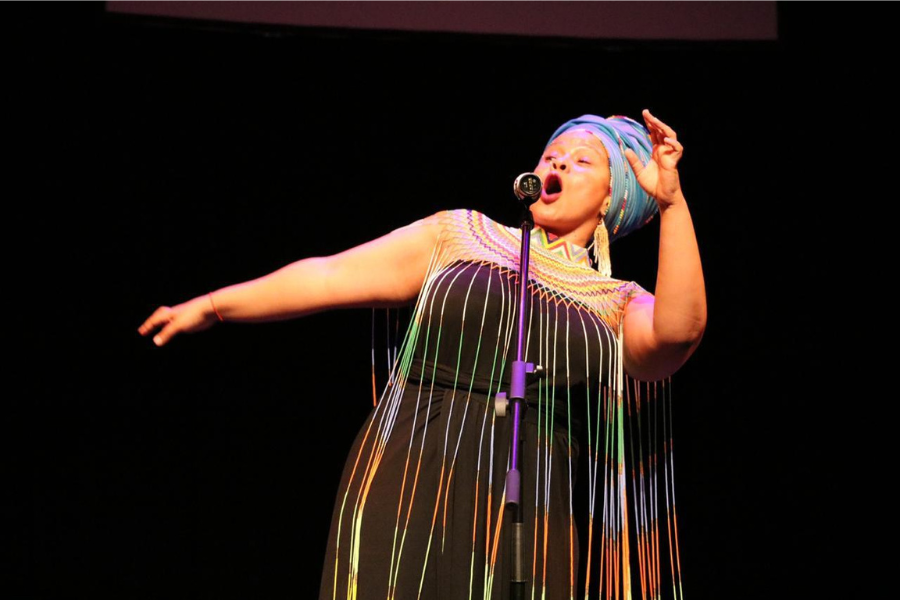
The theme Revolution of Words suggests a power in language. Can words alone shift consciousness?
Words can shift consciousness because words in and of themselves are consciousness. Words carry energy. Words help to give life meaning. Words are what we use to communicate who we are, to communicate what we think, to express our visions, and to express our emotions. Words create spells. Words can shift worlds. And even if you know words can't change the world out there – of 8+ billion people – words can change your world. And that's what matters.
"Poetry can affect policy, poetry becomes a part of history." – Lebo Mashile
Tell us about a few of the poems featured in this performance.
We've got Diana Ferrus', I've Come to Take You Home, a poem that was written into French law. Diana wrote this poem around the time that South Africa transitioned into democracy. For many decades, people all over the world had lobbied, agitated, and fought for Saartjie Baartman’s remains to be released from the French National Museum, but there was something very special about Diana's poem. Pre-internet, her poem kind of went "viral" and landed in the French Parliament. At this moment in history, with South Africa having just become free, it became possible for Saartjie’s body to come home.
We also have a poem – or song – by Hip Hop Pantsula (HHP), Lefatshe je. HHP used language in such a pioneering way. As one of the founding architects of Motswako, he made rapping in Setswana mainstream. He collaborated with poets and performed his hip hop in poetry spaces. Lefatshe je is a wonderful piece. In it, he uses choral music and a hymn as the chorus for the song. It’s a dark exploration of what happens when we go through torment, and the torture that surrounds us every day, living in South Africa. I think it’s a powerful example of how art can transcend and speak directly to the spirit.
There’s also a poem by a Khoi poet, Kabbo, titled The Alphabet of the Bushman. The poem was composed in Kabbo’s indigenous language, translated into Afrikaans, and then into English by Antjie Krog. The poem speaks about the relationship between the Khoi as hunter-gatherers with their landscape, how The Alphabet of the Bushman is written into the land and the animals, and how they read nature.
Do you remember your earliest encounter with poetry? What sparked your love for the medium – and spoken word in particular?
I remember doing poetry at school. To be very honest, I didn’t like it. I started to understand poetry when I came across writers like Emily Dickinson, and when I had a really wonderful English teacher who taught Shakespeare as a radical writer, because Shakespeare wrote for everybody. He wrote for men, for women, for those in power, and for the powerless. That’s when I started to see that poetry could actually be interesting.
But the place where language really spoke to me, where the poetic art form came alive, was hip-hop and music lyrics. Growing up in the 1980s and 90s in the United States really was such a magical period. New York City gave birth to the art form that was my primary entry point into poetry. Hip-hop was my training ground as a poet in terms of understanding what language can do and the musicality of it.
South Africa’s relationship with music – particularly dance music, from kwaito to bubblegum – and how it’s evolved over the last 30 years has deeply influenced my work. I immersed myself in places like 206, Kippies, the old Baseline, and Horror Café. Those spaces cooked me, taught me what poetry can do as a live art form.
Who have you worked with to bring Revolution of Words to life?
This project was a commission from UJ Arts and Culture. I was asked to put together a piece that would weave together South African set works from grade 11 poetry into a living, breathing theatrical production that could be staged with a view to touring schools. I received a huge pile of poetry in different languages in my inbox, and my brain immediately went kind of catatonic. I thought, there’s no way I can wade through all of this by myself. I needed help building this show.
I found myself in Jade Bower’s studio along with Quaz Roodt, two artists I love and respect tremendously for their skills and integrity. Both Jade and Quaz are educators at UJ. Working with Jade is wonderful because she’s an incredibly intuitive director, massively skilled, resourceful, and imaginative. I honestly think she could build the Sistine Chapel, the Universe if she wanted to. What I love about her is that she trusts the story is there. Quaz is a formidable poet in his own right. Quaz has been on the spoken word scene for more than 20 years. He is a prolific writer in English and Afrikaans, a foundational artist in the Joburg underground, and an educator who creates and nurtures spaces.
"There is something very special happening at UJ. They’re getting something right – exposing students across disciplines to the arts, and watching how deeply they care about it is inspiring." – Lebo Mashile
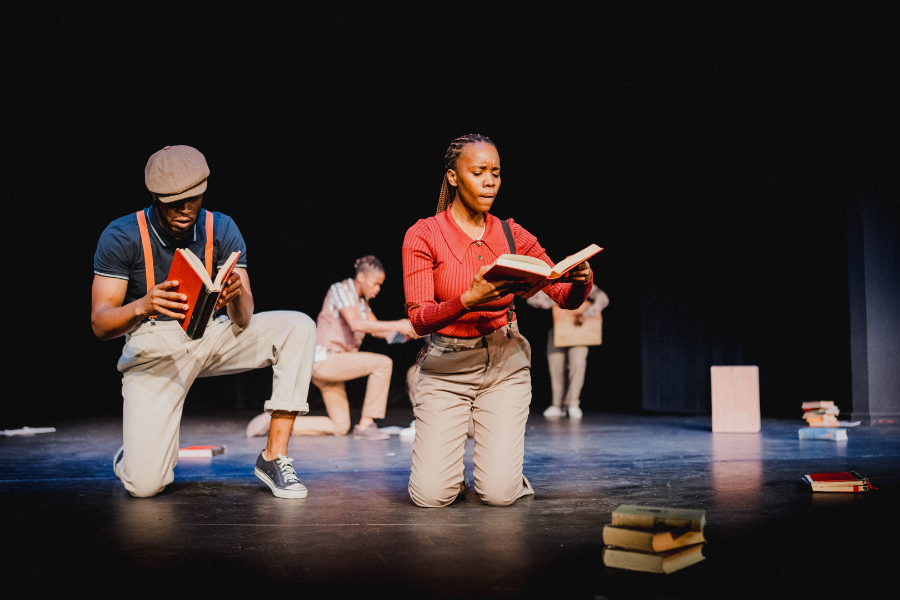
What do you enjoy about working with the University of Johannesburg (UJ)?
The interesting thing about UJ is that many students taking arts and culture are majoring in fields that have nothing to do with the arts – accounting, HR management, finance, architecture, and more. Arts and culture is often an elective, but it carries weight. It impacts their ability to graduate and move forward to the next academic year. And yet, the reverence they have for the arts is something else.
There is something very special happening at UJ. They’re getting something right – exposing students across disciplines to the arts, and watching how deeply they care about it is inspiring. I’ve been a research associate at UJ for the past three years, and my associateship ends this year or early next year. I’ve had the opportunity to grow alongside the young people coming through the university. Watching their evolution is magical. They are spellbinding performers.
To produce young people who will go off into corporate, government, or academia, but who carry a deep love and appreciation for the arts – that’s what we want to build, that’s what we want to inculcate. It’s a privilege for me to collaborate with UJ consistently. I believe tremendously in the work they’re doing. I think they are one of the most vibrant and important creative institutions in our city.
And it’s not just me. The number of contemporary, critical, cutting-edge, impactful artists – real people doing real work – who pass through the University of Johannesburg says a lot about the institution. Even without a dedicated arts faculty, they’ve managed to centre the arts in the lives of students.
"There are so many different ways to be a poet, so many ways to give life and expression to this art form." – Lebo Mashile
What does "a revolution of words" mean to you right now, especially in South Africa?
I had the privilege of being a judge for the National Arts and Culture Awards in 2025. As part of the adjudication, I had to pour over a lot of submissions from the length and the breadth of South Africa. That award was won by Napo Masheane, who stood head and shoulders above other poets in terms of her scoring based on her submission.
But the beauty of seeing so many accomplished and talented poets working in such different ways was mind-blowing. I'm still thinking about the impact of poetry and how poets are coming up with such innovative ways of creating work for themselves in their communities.
Some poets are community-based workers, working in healthcare centres, clinics, and primary schools, or in early child development facilities with young children, teaching them about the power of poetry and storytelling. Some poets are filmmakers. Some poets are street poets. Some poets are buskers, some are accomplished theatre makers, artistic directors, and activists. Some poets are griots, oral archives for their people. Some memorialise hundreds of years of history, of lineage, of a particular culture or nation.
There are so many different ways to be a poet, so many ways to give life and expression to this art form. I'm loving seeing how young people are using the digital space to create short films, giving a visual language not only to the text but also to performance, often incorporating music.
I feel like South Africa's strength is always the hybridity of cultures and the multiplicity of languages. Seeing this proliferation of expression – in different shades, colors, textures, languages, and mediums – poetry has a beautiful, bright, and powerful future in South Africa.
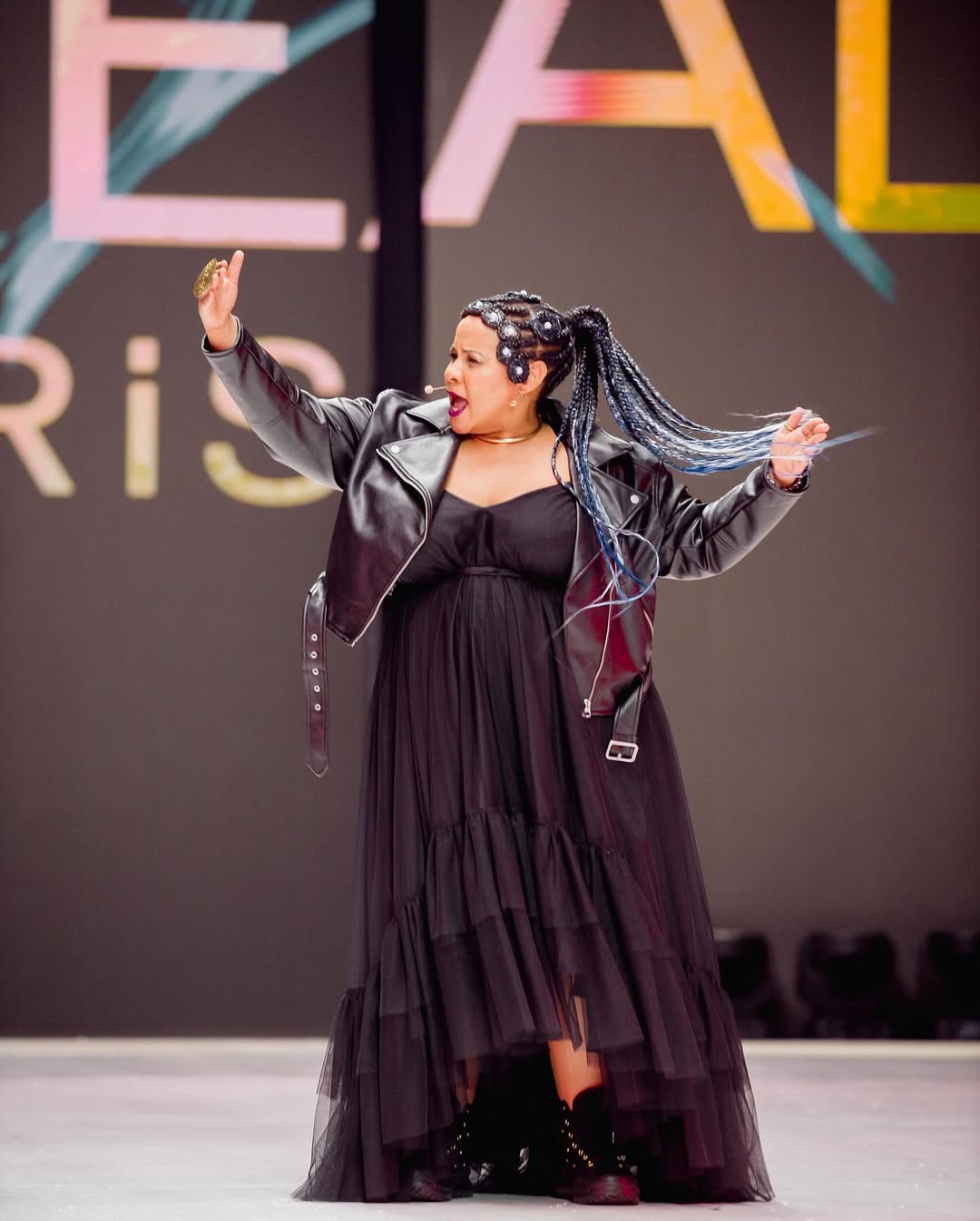
"You pay a heavy price to be in Joburg, but the rewards of being in Joburg are monumental. I love Johannesburg with all of my heart." – Lebo Mashile
What do you say to people who think poetry just isn't for them?
I don’t feel like I have to work very hard to win people over. I just have to do what I do. The consistent feedback that I get from people is: “Oh, I hated poetry at school. I thought poetry was boring or alienating. But what you do is amazing. What you do is electrifying. What you do speaks to me. What you do makes me want to be more myself.” That’s the feedback I consistently get. So people can sit there and say that they don’t like poetry. I’m still gonna do what I do.
How does Joburg as a city shape the way you write and perform your work?
Joburg forces me to question myself every day. Joburg asks me questions about class, race, culture, inequality, and spatial organisation. Joburg confronts me with history. Joburg inspires me. Joburg is electrifying. Joburg is also terrifying. You pay a heavy price to be in Joburg, but the rewards of being in Joburg are monumental. I love Johannesburg with all of my heart. Even when she rips me apart, I love Joburg.
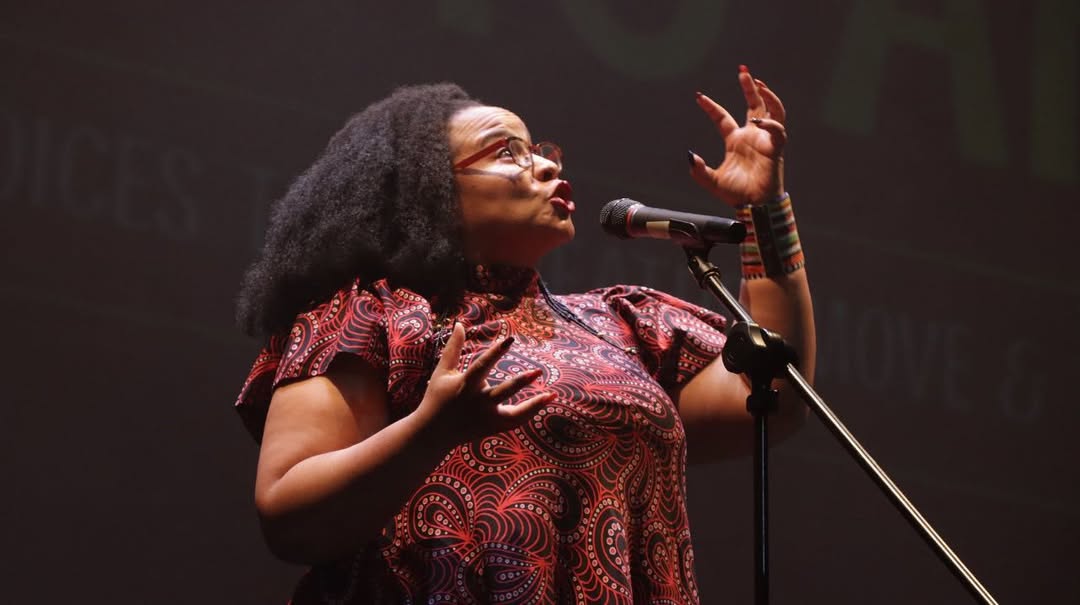
Rapid-fire round: Six questions about Joburg
What brought you to Joburg and what makes you stay?My family, coming back from exile, brought me to South Africa. Probably the OG ancestor who is responsible for our lineage being in South Africa is my great-grandmother on my maternal side, Ponso Occhalo. She came to Joburg at the turn of the last century and put down roots, and we have been here ever since. We owe our existence as a family in this city to her, and she is a badass I look to continuously for inspiration.
What keeps me here? Gosh, the freshness, the opportunities, the imagination, the inspiration, the money, the relentless, relentless, relentless pressure, the incredible artists, the advanced headspace, the revolutionary ways of thinking and being, the freedom to be black and fabulous, the freedom to be a feminist – and the contradiction of being able to construct the life that I want, but not being able to walk down the street, you know? South Africa makes you pay a high price for loving it, but I love it still. And I wouldn't have it any other way.
One song on your playlist that is either about Joburg or makes you think about this city?
Déjà vu by Kwani Experience is the first song that comes to mind. It's a banger of a song, a real classic, and it's been on my playlist for more than 20 years. Whenever I think about it, I think of Newtown and the inner city, and all of the creativity of the arts movement in Johannesburg.
"What keeps me [in Joburg]? The freshness, the opportunities, the imagination, the money, the pressure, the incredible artists, the revolutionary ways of thinking and being..." – Lebo Mashile
What is a surprising thing people might learn about Joburg by having a conversation with you?
My parents were born in Sophiatown – my mom in 1955, and my dad in Western Native Township (what is now Westbury) in 1946. My parents were both children at the time of the Group Areas Act forced removals, and their families were relocated to Soweto. So both of my parents have forced removals as a vivid, vivid childhood memory. Forced removals are the reason why my family calls Soweto home. Otherwise, we would have been calling Sophiatown and Westbury home.
If you were Joburg's mayor for one day (average tenure), what would you change?
Oh my god. Okay, I would create Wi-Fi hubs everywhere – plug points where people can charge their phones, access Wi-Fi, hang around, mill about, download things, and use the internet. I would make the city a Wi-Fi-friendly zone where people can access it easily.
I would focus on the Johannesburg City Library, which has just been reopened. I’d have daily events taking place there for children, elderly people, artists, students, and whoever else wants to be involved. I’d curate a daily programme out on the square in front, and then drive traffic into the library to use that beautiful space.
I would also create a kind of "claim back the night" situation. I’d have the police out at night so that women could walk around safely. For that one night – if I could only be mayor for a day – I would use the opportunity to make the streets a joyful place for women. We would take over the night and party, walk, run, wear tights, booty shorts, or whatever we wanted, with the police protecting us. Yoh, friend, what dreams may come.
Three words that describe this city.
Tenacious, electrifying, and eclectic.


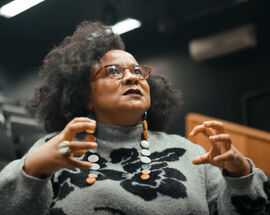
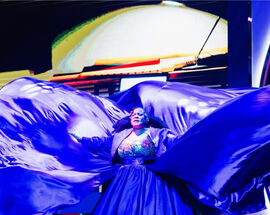
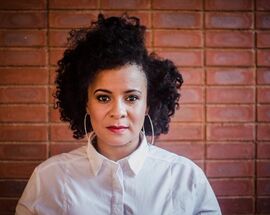


Comments